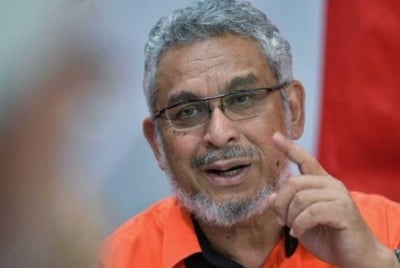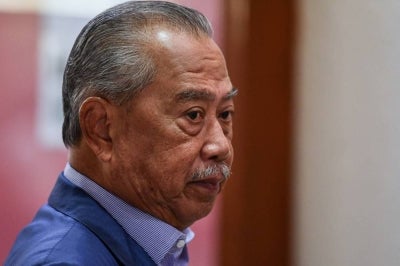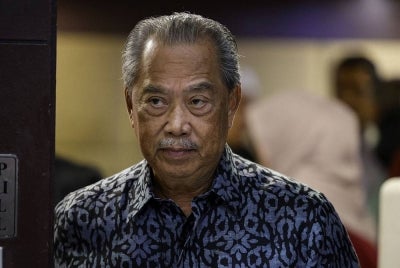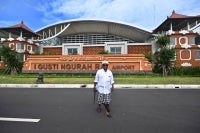Sanusi at risk of losing MB, assemblyman status if found guilty

SHAH ALAM – Caretaker Kedah Menteri Besar Datuk Seri Muhammad Sanusi Md Nor has no issues in competing for the Kedah state election despite facing charges under the Sedition Act 1948 (Act 15) in the Selayang Sessions Court on Tuesday.
However, lawyer Mohamed Haniff Khatri Abdulla said the Jeneri state legislative assembly incumbent was at risk of losing his status as Kedah Menteri Besar and the state seat he might win in the election.
He said the scenario might happen if Sanusi was found guilty and sentenced to exceed the punishment leading to disqualification to be the people’s representative.
Based on both charges read in front of Judge Nor Rajiah Mat Zin and Judge Osman Affendi Mohd Shalleh, Sanusi was accused of committing acts with a seditious tendency to incite feelings of disloyalty towards any ruler.
The prosecution under Paragraph 4(1)(a) of the Sedition Act 1948 (Act 15) is punishable under Subsection 4(1) of the same act provides a maximum fine of RM5,000 or a maximum prison sentence of three years or both if guilty.
“Although the hypothesis of Sanusi’s guilt is premature, it is important to know he is at risk of losing the seat he would win in the Kedah state election or the post of Menteri Besar he was expected to retain if PN remained in power.
“The expectation applies if the punishment imposed on him exceeds the eligibility requirements for elected representatives under Article 48 (1) (e) of the Federal Constitution which states that the individual loses qualification as an MP if convicted and sentenced to more than one year of prison or a fine of not less than RM2,000 and does not get a pardon.
“The same allocation existed under Article 47 Clause 1 (e) of the Kedah State Law Constitution, but I believe Sanusi can still defend himself with the prosecution having to show strong evidence,” Haniff told Sinar Premium on Tuesday.
Commenting on Sanusi’s claims that it was an attempt to politically assassinate his character, Haniff said the Perikatan Nasional (PN) Election chairman could raise the matter in court.
“Regardless of whether the prosecution against him is malicious, fraudulent or in the form of political assassination, he can raise the issue in court and have a lawyer prove it.
“All matters related to the case or issues that affected his integrity must be raised in court as all talks were outside of court, it would not affect the judge’s decision,” he said.
He said the prosecutor’s application for the court to prevent Sanusi from making public comments related to the case outside of court is unreasonable, improper and interferes with the rights of the accused if it was filed.
Veteran political analyst Dr Ahmad Atory Hussain described the case of the arrest of Sanusi in the early morning to be similar to the arrest of Prime Minister Datuk Seri Anwar Ibrahim after he was dismissed from the deputy prime minister post in 1998.
“If the case of Anwar’s arrest was due to corruption charges which ultimately triggered the ‘reform’ phenomenon is considered a form of political character assassination, why can’t the same be considered to have happened to Sanusi, who may strengthen the green wave phenomenon in the state elections?
“Just as Anwar’s arrest during the leadership of Tun Dr Mahathir Mohamad as prime minister was done when he reached the peak of political popularity, the same thing occurred to Sanusi, now considered the brightest PN political star.
“Whether he would be convicted or not is another matter.
“However, I believe that it will be difficult for the public prosecutor to prove that the Kedah Menteri Besar is guilty given the definition of an offence involving the 3R (race, religion and royalty) is still unclear and full of loopholes,” he said.
Download Sinar Daily application.Click Here!















